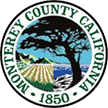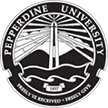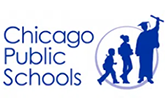Cal Interpreting & Translations provides Afrikaans interpreters with experience in attorney-client meetings, depositions, trials, hearings, mediations, and more. We provide Afrikaans interpretation in both criminal and civil matters.
Our interpreters travel all over the world providing impeccable Afrikaans language services to law firms, the entertainment industry, conferences, and more. Cal Interpreting & Translations (CIT) has years-long positive relationships court experienced interpreters, and can provide the highest qualified Afrikaans interpreters in the state, for even the most technical or specialized matters.
We offer Afrikaans interpreters and translators with legal, medical, and specialty experience, including criminal and civil matters, conferences, employee meetings, engineering, patent cases, labor disputes, immigration, patent, copyright infringement, and more.
Cal Interpreting & Translations offers comprehensive Afrikaans language services including interpretation, translation, and transcription, 24 hours a day, 7 days a week, worldwide. Our interpreters and translators have been screened, certified, provided credentials, field tested, and kept up to date with developments in both English and Afrikaans languages through means such as lectures, conferences, and travel.
Cal Interpreting and Translations’ Afrikaans interpreters and translators possess in depth knowledge of the Afrikaans language, as well as of culture and history, allowing them to provide informed and complete interpretation and translation.
Afrikaans evolved from a dialect of Dutch spoken in South Holland, and is actually considered a ‘daughter language’ of Dutch. It was referred to as ‘Cape Dutch’ during its early years, a reference to the early Cape settlers, who were the first to speak the language in the 18th century.
The language arose gradually in the Dutch Cape Colony during this time. The term Afrikaans originated as Afrikaans-Hollands, meaning literally, ‘African Dutch’. Afrikaans was subject to much scorn and belittling from Dutch speakers.
It was often referred to as ‘mutilated’, ‘broken’, ‘incorrect’, or ‘uncivilized’ Dutch, and was considered by many standard Dutch speakers to be beneath Dutch. Though Afrikaans borrows words from other languages such as German and Khoisan, an estimated 90-95% of Afrikaans is of Dutch origin.
These first settlers to South Africa and Cape Town were largely from what are now the Netherlands and Flanders. However, a portion of the community were also of French Huguenot origin, or from Germany.
Still, the development of Afrikaans would not be what it is today without the contributions of African and Asian workers and slaves. This slave population was made up of individuals from East Africa, West Africa, Madagascar, India, and modern-day Indonesia.
A large number were also indigenous Khoisan people, who were used by settlers as interpreters, physical laborers, and domestic servants. It has been argued that the development of Afrikaans was due largely to nonwhite slaves and laborers, who learned Dutch imperfectly as a second language.
Afrikaans was first written using the Arabic alphabet, but began to be written in the Latin alphabet around 1850. Afrikaans was officially recognized by the South African government in 1925.
As mentioned above, an estimated 90-95% of Afrikaans is of Dutch origin.
So, what exactly is the difference between Afrikaans and Dutch? In short- a lot. To begin with, the morphology of the two languages is quite different. Afrikaans is an analytic morphology, meaning what is most important to the synthesis of the language is the placement and chronology of the words spoken, and less important is inflection of words.
English also has an analytic morphology. Dutch, however, is considered a synthetic language, meaning tones and inflection play a big part in the way the language is spoken and understood.
The grammar and pronunciation of Afrikaans greatly differs from Dutch as well. However, the two languages have a degree of mutual intelligibility, especially in written form.
There are about 7 million native Afrikaans speakers in South Africa, or about 13.5% of the population, making it the third most spoken language in the country. Afrikaans is widely spoken and understood as a second and third language throughout South Africa. Afrikaans is the majority language of the Western half of South Africa. Racially, the breakdown of speakers in unique. Afrikaans is the first language of 75.8% of Coloured individuals in South Africa, 60.8% of white South Africans, 4.6% of Asian South Africans, and 1.5% of black South Africans.
Afrikaans is widely taught in public schools with about 10.3 million second language students in South Africa. It is also spoken as a second language in Nambia, a neighboring country, and is even considered a lingua franca. A little over 10% of households in Nambia speak Afrikaans as a first language.
The total number of Afrikaans speakers is estimated to be between 13 and 25 million people.
English has influenced the development of Afrikaans. Likewise, some words in Standard English are actually of Afrikaans origin. For example, the word aardvark comes from the Afrikaans word meaning literally ‘earth pig’. ‘Trek’ and ‘commando’ are other words of Afrikaans origin that have become standard in the English language.
CIT services for Afrikaans includes business promotional videos, dubbing, subtitles, captioning and voice over work. Document translation in Afrikaans includes birth certificates to human resource employee handbooks. CIT can perform transcription in Afrikaans for legal, educational use and government use.
The nonwhite communities of South Africa historically prefer English over Afrikaans as a language of instruction. Though English is the first language of a very small percentage of the South African population, it is the most widely understood language in the country, and the second language of most South Africans. In fact, in the 1970’s, after a government attempt to insert Afrikaans as the country’s instructed language along with English, there was an uprising in black schools, forcing the government to rescind the attempt. 96% of black schools subsequently chose English over Afrikaans or native languages as the language of instruction. Following this, there were multiple violent student rebellions and protests in universities in South Africa, calling for the removal of Afrikaans in schools, due to the perception of some of Afrikaans as a language of colonization, whiteness, and oppression.
Post-apartheid, there has been a major loss of favor for Afrikaans to English. In education, media, international display, and throughout the country, English has steadily replaced Afrikaans since the 1990’s. However, in more recent years, there has been a resurgence of interest in the language by younger generations, who see the negative stigma less than previous generations. Many of these youths have given Afrikaans a new degree of inclusivity, promoting Afrikaans alongside other native languages.


No matter what your needs may be, we can and are ready to assist you now. We have translators and interpreters standing by 24/7.

CIT's interpreter is such a rockstar, and it’s so great to have him as a lead interpreter for our Board meetings. About Our Interpreters 
Thank you for always being able to handle emergency interpreting assignments with ease. About Urgent Requests 
Thank you for always being able to handle emergency interpreting assignments with ease. About Urgent Requests 
Your translation rates are more competitive than other language service providers I used in the past. About Pricing 

Professionalism matters at CIT. We respond to request inside 24 hours.







